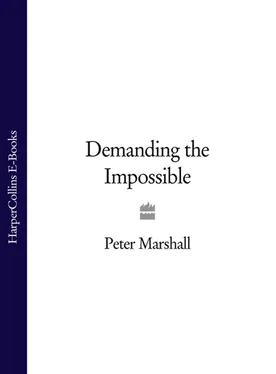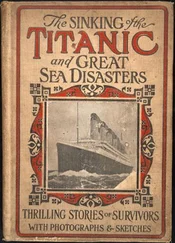Political regulations, Burke further suggests, create social conflict, and political society is responsible for war since in the state of nature it is impossible to form armies; thus ‘All Empires have been cemented in Blood.’ The artificial division of mankind into separate groups further produces hatred and dissension. And while in the state of nature man acquires wealth in proportion to his labours, in the state of artificial society with government it is an invariable law that ‘those who labour most, enjoy the fewest things; and that those who labour not at all, have the Greatest Number of Enjoyments.’ 16
Burke examines the different forms of government – despotism, aristocracy, and democracy – but finds them all wanting. Although democracy is preferable, he argues that all governments must frequently infringe justice to support themselves. He therefore draws the anarchist conclusion: ‘In vain you tell me that Artificial Government is good, but that I fall out only with the Abuse. The Thing! The Thing itself is the Abuse!’ Rejecting all artificial laws and the alliance of Church and State, Burke declares at the end of his eloquent and penetrating work: ‘We should renounce their “Dreams of Society”, together with their Visions of Religion, and vindicate ourselves into perfect liberty.’ 17
When Burke became a Tory after the French Revolution and thundered against all improvement, he disowned his Vindication of Natural Society as a youthful folly. Most commentators have followed suit, suggesting that he was trying to parody the manner of Bolingbroke. But Godwin, while recognizing Burke’s ironic intention, took him seriously. He acknowledged that most of his own arguments against political society in An Enquiry concerning Political Justice (1793) may be found in Burke’s work—‘a treatise, in which the evils of the existing political institutions are displayed with incomparable force of reasoning and lustre of eloquence’. 18 In the following century, the radical secularist George Holyoake reprinted Burke’s work under the tide The Inherent Evils of all State Governments Demonstrated (1858). The editor declared enthusiastically that it was ‘one of the soberest productions ever-written’ and referred in an appendix to the anarchists Pierre-Joseph Proudhon and Josiah Warren for further clarification of Burke’s ‘great truth that State governments will never give real freedom to their subjects’. 19
The outbreak of the French Revolution in 1789 sparked off one of the greatest political debates in British history. Burke’s Reflections on the Revolution in France (1790) fell as a bombshell amongst radicals like Thomas Paine, Thomas Holcroft, William Godwin, Mary Wollstonecraft and William Blake. Wollstonecraft made one of the first replies to Burke, in her Vindication of the Rights of Men (1790), and then went on to write A Vindication of the Rights of Woman (1792), which established her reputation as the first great feminist. She made a powerful plea that mind has no gender and that women should become independent and educated beings. But although she attacked hereditary distinctions and economic inequality, she still looked to a reformed government to protect natural rights.
Paine also used the language of natural rights in his celebrated Rights of Man (1791–2), but his libertarian sensibility took him to the borders of anarchism. The son of a Quaker staymaker of Thetford, Norfolk, he had tried his trade in London before becoming an excise-man in Lewes, Sussex. His Quaker background undoubtedly encouraged his plain style and egalitarian sentiments, as well as his confidence in the ‘inner light’ of reason and conscience to lead him to truth and virtue. He liked to boast that ‘I neither read books, nor studied other people’s opinions. I thought for myself.’ 20 He believed that man was fundamentally good, and saw the world as a garden for enjoyment rather than as a valley of tears. Above all, he valued personal liberty: ‘Independence is my happiness,’ he wrote in his maturity, ‘and I view things as they are, without regard to place or person; my country is the world, and my religion is to do good.’ 21
Paine was a man of his industrial age. He adopted Newton’s view of the world as a machine governed by universal laws. Applying the same analytical method to society and nature, he felt that both could be refashioned according to reason. Just as he spent many years designing an iron bridge, so he tried to redesign society on the same simple and rational principles. He was a mechanical and social engineer: ‘What Archimedes said of the mechanical powers’, he wrote, ‘may be applied to Reason and Liberty: “ Had me ”, he said, “ a place to stand upon, we might raise the world .”’ 22
Dismissed from service in Lewes, Paine decided to try his luck in the American colonies. On his arrival, he rapidly threw himself into the social and political struggles of the day. He wrote articles in a direct and robust style which advocated female emancipation and condemned African slavery and cruelty to animals. In 1775, he called eloquently for an end to the legal and social discrimination against women:
Even in countries where they may be esteemed the most happy [women are] constrained in their desires in the disposal of their goods; robbed of freedom and will by the laws; slaves of opinion which rules them with absolute sway and construes the slightest appearances into guilt; surrounded on all sides by judges who are at once tyrants and their seducers … for even with changes in attitudes and laws, deeply engrained and oppressing social prejudices remain which confront women minute by minute, day by day. 23
It was however only in the following year that Paine came to prominence with his pamphlet Common Sense (1776), the first work to argue for the complete independence of the thirteen colonies from England. He advocated a people’s war to throw off the English yoke and hoped America would become a land of freedom, thereby offering an inspiration to the peoples living under European tyrannies. His internationalism and love of freedom come across in his rousing call:
O ye that love mankind! Ye that dare oppose, not only the tyrrany, but the tyrant, stand forth! Every spot of the old world is over-run with oppression. Freedom hath been hunted round the globe. Asia, and Africa, have long expelled her.—Europe regards her like a stranger, and England hath given her warning to depart O! receive the fugitive, and prepare in time an asylum for mankind. 24
The experience of the American Revolution had a marked effect on Paine. He was deeply impressed by the orderly nature and decorum of American society after the dissolution of the colonial government before the establishment of a new constitution. In his famous opening to Common Sense , Paine like later anarchists distinguished between society and government. He felt that they are not only different, but have different origins:
Society is produced by our wants, and government by our wickedness; the former promotes our happiness positively by uniting our affections, the latter negatively by restraining our vices. The one encourages intercourse, the other creates distinctions. The first is patron, the last a punisher.
Society in every state is a blessing, but government even in its best state is but a necessary evil; in its worse state an intolerable one; for when we suffer, or are exposed to the same miseries by a government , which we might expect in a country without a government , our calamities is heightened by reflecting that we furnish the means by which we suffer. Government, like dress, is the badge of lost innocence; the palaces of kings are built on the ruins of the bowers of paradise. For were the impulses of conscience clear, uniform, and irresistibly obeyed, man would need no other lawgiver. 25
Читать дальше












